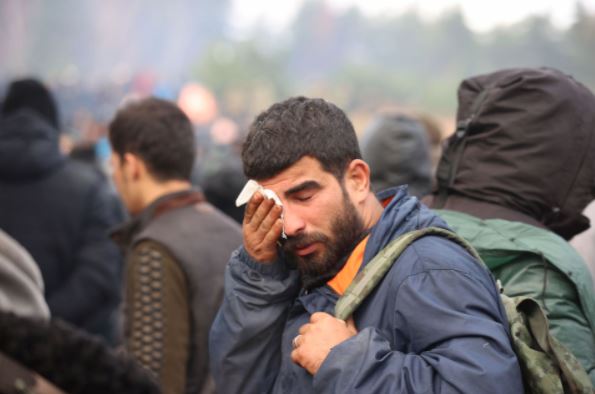
Migrants gather on the Belarusian-Polish border in the Grodno region, Nov 8, 2021. Leonid Scheglov/BelTA/Handout via REUTERS
PM:01:52:11/11/2021
8380 View
+
-
SULAIMANI — Head of the Summit Foundation for Refugees and
Displaced Affairs Ari Jalal told NRT on Thursday (November 11) that at least
40,000 adults have left Iraq and the Kurdistan Region since the beginning of
the year and applied for asylum abroad.
Many others who hope to do so are now stranded on the border
between Belarus and Poland and Lithuania.
They are the most recent arrivals in an extended wave of
emigration from Iraq, where at least 633,000 adult Iraqi nationals have applied
for asylum abroad during the last seven years, according to data collected by
the Summit Foundation.
At least 261 people died making the trek to Europe during
that period and 187 others remain missing.
Jalal said that there are an estimated 10,000 migrants in
Belarus at the moment according to unofficial statistics, with most of those
from Iraq, Syria, and Afghanistan.
He said that migrants and people smugglers began using the
Belarus route in recent months, but that the number of trips has increased over
the last three weeks. Many of the migrants reach Minsk and subsequently the
border using flights and transportation organized by travel agencies.
Asked about the response by the Kurdistan Regional
Government (KRG) and Iraq’s federal government, the watchdog head told NRT that
they have done "nothing appreciable” to resolve the situation.
In a separate statement published on Monday, Jalal gave a
number of reasons for why migrants want to leave the Kurdistan Region, most of
which have to do with poor governance, but also said that Belarus was acting
opportunistically to exploit migrants’ hopes.
Among the reasons he cited for why people were leaving the
Region were the effects of the lack of financial transparency or an official
budget passed by the Kurdistan Parliament, a failure to manage the human and
financial potential of the Region, cuts and delays in the disbursement of
public sector salaries, a loss of trust in the authorities, neglect of certain
areas in the Kurdistan Region, and failure to build and maintain proper infrastructure
and public services, including electricity, water, and roads.
He argued that the sum effect of these governance problems
was to create massive inequality in the Kurdistan Region, which has spurred
many people to leave.
One suggestion he offered in the short term would be for the
KRG to establish a "special governmental agency to spread awareness to citizens
about the consequences of illegal emigration.”
Jalal explained that the reason why migrants were now using
the Belarus route was because Minsk had been liberally granting visas to Iraqis
and encouraging them to cross into the European Union in pursuit of its own
interests.
The EU has heavily criticized the Belarusian regime for its
human rights record, including a crackdown last year following claims of a
rigged election. Brussels says that Minsk is weaponing the migrants’ plight by
encouraging them to cross the border.
Regarding coverage of the current situation on the
Belarus-Poland border, Jalal told NRT on Thursday that media outlets should
report the truth and assess the situation neutrally and stressed the importance
of covering the lives of refugees and migrants in foreign countries and the
conditions they face.
(NRT Digital Media)